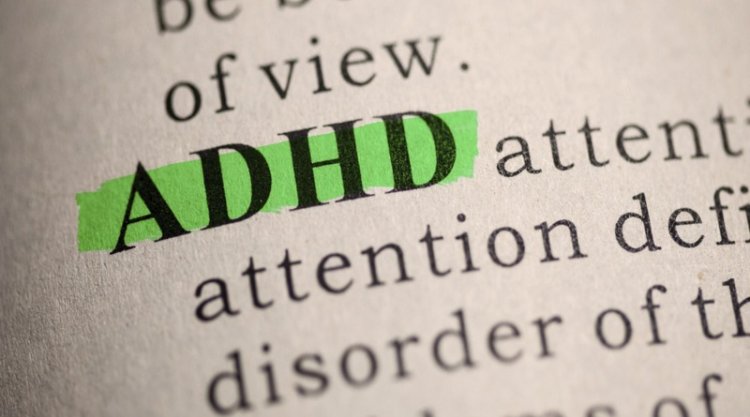How to Support a Partner with ADHD
Supporting a partner with ADHD involves a blend of understanding, communication, practical assistance, and self-care. By educating yourself about ADHD.
Share this Post to earn Money ( Upto ₹100 per 1000 Views )

Attention Deficit Hyperactivity Disorder (ADHD) is a neurodevelopmental disorder characterized by symptoms of inattention, hyperactivity, and impulsivity. When a partner has ADHD, it can bring unique challenges to the relationship. However, with understanding, communication, and practical strategies, you can provide valuable support and strengthen your partnership. Here’s how you can effectively support a partner with ADHD:
Understanding ADHD
Understanding ADHD is the first step in supporting your partner. ADHD is not just about being inattentive or hyperactive; it affects executive functions such as organization, time management, and impulse control. These challenges can impact various aspects of life, including work, relationships, and daily tasks.
Educate yourself about ADHD to gain a clearer perspective on what your partner experiences. There are numerous resources available, including books, articles, and support groups. The more you know, the better equipped you’ll be to offer meaningful support.
Open Communication
Open communication is crucial in any relationship, but it's especially important when ADHD is involved. Encourage your partner to share their thoughts and feelings about their ADHD and how it affects them. Be an active listener and avoid judgment. Creating a safe space for open dialogue can help your partner feel understood and less isolated.
Express your feelings and concerns in a non-confrontational manner. Use "I" statements, such as "I feel overwhelmed when there are many tasks left unfinished," rather than placing blame. This approach fosters a collaborative atmosphere and prevents defensiveness.
Develop Routines and Systems
ADHD often affects organizational skills, so developing routines and systems can help your partner manage daily responsibilities more effectively. Work together to create a structured environment that accommodates their needs. This might include using visual reminders, setting up routines for daily tasks, and breaking larger projects into manageable steps.
For example, establish a shared calendar to keep track of important dates and deadlines. Use reminders and alarms for time-sensitive tasks. Implementing these tools can help your partner stay organized and reduce feelings of overwhelm.
Offer Practical Assistance
Sometimes, practical assistance can make a significant difference. Offer to help with tasks that your partner might struggle with, such as organizing paperwork, managing finances, or planning events. However, be mindful of not taking over entirely. Your goal should be to support rather than to take control.
Encourage your partner to develop their own strategies and offer guidance where needed. For instance, if they struggle with time management, suggest using a timer or breaking tasks into smaller segments. Providing support in this way helps empower your partner to take charge of their responsibilities while still feeling supported.
Foster Patience and Empathy
Supporting a partner with ADHD requires patience and empathy. Recognize that ADHD-related behaviors are not intentional or a reflection of their feelings toward you. They may struggle with follow-through, time management, or impulse control, which can lead to misunderstandings or frustration.
Practice empathy by putting yourself in your partner’s shoes. Acknowledge the difficulties they face and offer reassurance. Celebrate their successes, no matter how small, and provide encouragement during challenging times. Your supportive attitude can boost their confidence and resilience.
Encourage Professional Help
Encouraging your partner to seek professional help can be beneficial. ADHD is often managed through a combination of medication, therapy, and lifestyle changes. Support your partner in finding a healthcare provider who specializes in ADHD disorder. Therapy can provide them with coping strategies and tools to manage symptoms effectively.
Be supportive of their treatment plan and encourage them to follow through with their prescribed regimen. This might include attending therapy sessions, taking medication as directed, and incorporating recommended lifestyle changes. Your involvement can help your partner stay committed to their treatment and improve their overall well-being.
Take Care of Yourself
Supporting a partner with ADHD can be demanding, so it's essential to take care of your own well-being as well. Set boundaries and make time for self-care. Engage in activities that rejuvenate you and maintain your own social connections and interests.
Consider joining a support group for partners of individuals with ADHD. Sharing experiences and learning from others in similar situations can provide valuable insights and emotional support.
Conclusion
Supporting a partner with ADHD involves a blend of understanding, communication, practical assistance, and self-care. By educating yourself about ADHD, fostering open dialogue, developing effective systems, and offering empathetic support, you can help your partner navigate the challenges they face. Remember that a strong, supportive relationship can make a significant difference in managing ADHD and building a fulfilling partnership.














